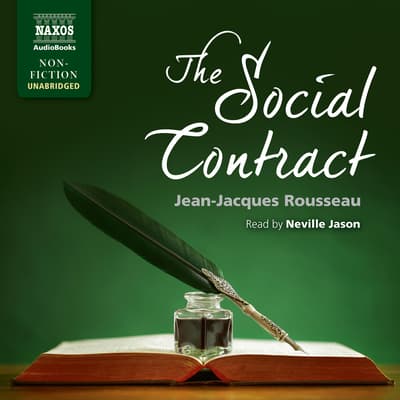

Once it is declared, they are as citizens participants in it, and as subjects they must obey it.By Ethan Hollander, Wabash College Thomas Hobbes, John Locke and Jean-Jacques Rousseau: these three Enlightenment thinkers set the stage for how we think about state power in the modern world.

The minority, then, simply have it proved to them that they estimated the general will wrongly.

I reply that when a law is proposed in the popular assembly the question put is not precisely whether the citizens approve or disapprove of it, but whether it conforms or not to the general will. But how can a man be free, and at the same time submit to laws to which he has not consented? The only law requiring unanimity is the contract itself. It is a logical sequence of the social contract that in the assemblies of the people the voice of the majority prevails. The compact therefore may be reduced to the following terms: ‘Each of us places in common his person and all his power, under the supreme direction of the general will, and we receive each member as an indivisible part of the whole’… No individual can retain any rights that are not possessed equally by all other individuals without the compact being thereby violated… The essence of the pact is the total and unreserved alienation by each partner of all his rights to the community as a whole. To this problem the social contract affords a solution. The problem with which men are confronted in these circumstances may be put thus: ‘To find a form of association that defends and protects, with all the common force, the person and property of each partner, and by which each partner, uniting himself with all the rest, nevertheless obeys only himself, and remains as free as heretofore.’ What is it that legitimises this subjection to government? I think I can solve the problem. “Man is born free, and yet is everywhere in fetters.


 0 kommentar(er)
0 kommentar(er)
